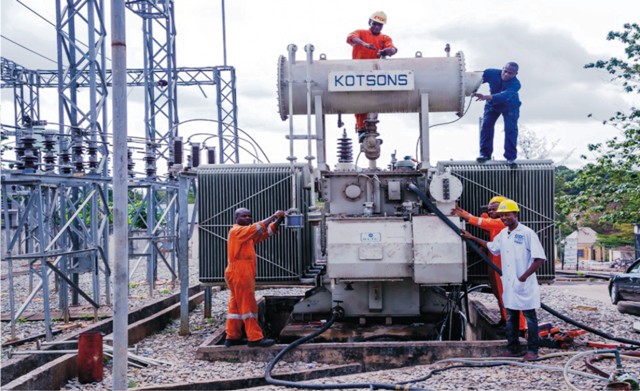Oil & Energy
Oil Exports: Nigeria Cuts Selling Prices To Lure Buyers

Nigeria has cut its official selling prices of a basket of May-loading crude oil grades in a bid to attract buyers.
The nation’s crude oil has had a difficult time clearing in recent weeks, as offer levels were too high to attract buying interest from European refineries.
Nigeria released its official selling prices for May, showing a decrease for major grades, including Bonny Light and Qua Iboe, Forcados and Escravos, by around 20 to 25 cents compared with April, according to Reuters.
Buyers had been largely reluctant to pick up cargoes of May-loading cargoes offered at and above a premium of $2 compared to dated Brent.
One trader was quoted as saying that backwardation and low refining margins had reduced the appeal of Nigerian crude for European buyers.
Turkey’s Tupras has issued a tender for three cargoes of Nigerian for loading between May 25 and June 10 but had bought at least one, a cargo of Nigerian Jones Creek.
Uruguay’s state-owned oil company, ANCAP, has issued a buy tender for July 1-6 arrival.
Angolan crude was already selling rapidly and at sky-high prices after the preliminary loading programme for June showed the lowest volumes in over a decade.
Angolan crude oil exports are set to plunge to 38 cargoes due to a shutdown for maintenance at the Saturno field during June and issues affecting the Girassol stream.
The state oil company, Sonangol, which holds 15 of the June cargoes, was said to have almost sold out its spot cargoes, in an extremely quick turnaround relative to previous months.
Demand for the scarcer supply sent differentials far higher, as U.S. sanctions on comparable Iranian and Venezuelan crudes added to the relative scarcity of Angolan to widen a gap in the market for heavy sweet crude.
Sonangol’s three cargoes of Dalia were heard to have sold out at record highs around a $2 premium compared with dated Brent and June’s sole cargo of Gimboa for around the same.
The state oil company’s only remaining cargo was of Saturno, which is being indicated at $1.80.
Oil & Energy
NCDMB Unveils $100m Equity Investment Scheme, Says Nigerian Content Hits 61% In 2025 ………As Board Plans Technology Challenge, Research and Development Fair In 2026

Oil & Energy
Power Supply Boost: FG Begins Payment Of N185bn Gas Debt

In the bid to revitalise the gas industry and stabilise power generation, President Bola Ahmed Tinubu has authorised the settlement of N185 billion in long-standing debts owed to natural gas producers.
The payment, to be executed through a royalty-offset arrangement, is expected to restore confidence among domestic and international gas suppliers who have long expressed concern about persistent indebtedness in the sector.
According to him, settling the debts is crucial to rebuilding trust between the government and gas producers, many of whom have withheld or slowed new investments due to uncertainty over payments.
Ekpo explained that improved financial stability would help revive upstream activity by accelerating exploration and production, ultimately boosting Nigeria’s gas output adding that Increased gas supply would also boost power generation and ease the long-standing electricity shortages that continue to hinder businesses across the country.
The minister noted that these gains were expected to stimulate broader economic growth, as reliable energy underpins industrialisation, job creation and competitiveness.
In his intervention, Coordinating Director of the Decade of Gas Secretariat, Ed Ubong, said the approved plan to clear gas-to-power debts sends a powerful signal of commitment from the President to address structural weaknesses across the value chain.
“This decision underlines the federal government’s determination to clear legacy liabilities and give gas producers the confidence that supplies to power generation will be honoured. It could unlock stalled projects, revive investor interest and rebuild momentum behind Nigeria’s transition to a gas-driven economy,” Ubong said.
Oil & Energy
The AI Revolution Reshaping the Global Mining Industry


